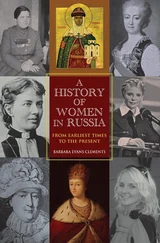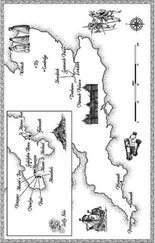“In the Bellamy house.”
Where was Catherine? He had seen her curled up beside Mary’s cot late last night-surely she could not have somehow slipped out and gone to that house? Shakespeare was seized by fear, a terror so intense he felt his chest encircled by icy tentacles. There was a hammering at the door and Boltfoot shuffled away, dragging his clubfoot, to answer it.
Richard Topcliffe stood there, alone, incongruous in his court satin and ruff. Richard Topcliffe-white-haired priest-hunter, torturer, prosecutor, and executioner-a man who had his sovereign’s ear and gloried in no title other than Queen’s Servant.
“Boltfoot Cooper. What, not dead yet? We shall have to attend to that.” He pushed past Boltfoot into the antechamber and stood a moment, hands on hips, legs astride, looking about him. “So, this is Mr. Shakespeare’s spawning ground for Papist traitors.”
In the next room, Shakespeare got up from the long oaken table. He knew instantly who it was; that cur-like voice, which he had not heard in five years, would always fill him with foreboding. He went straight through to the anteroom to confront him. “Topcliffe,” he said. “You are not welcome in my house.”
“Hah, Shakespeare. You did not think I had forgot you, I hope? A pretty pile you have here, pleasingly placed beside the river. I believe this building will be mine one day, when I secure your conviction for treason. And that cannot be long in coming.”
“Why are you here?”
“Why, sir, I bring you information. There have been complaints lodged against your school. The bishop does fear that you are in breach of your license, teaching of saints and relics and superstitious treason. I am to report to him whether this house of easement should not be closed down.”
“You lie, Topcliffe. These are nought but lies.”
Topcliffe put his hand inside his green doublet and brought forth a paper. “You will see. But I have good news, too. News to delight you, I am sure. This very day I have disturbed a hill of Romish ants and plucked forth the chiefest among them, one Robert Southwell, also known as Cotton. And all in a house I believe your Papist wife knows well. Are you not pleased, Shakespeare, that traitors have been apprehended and will be questioned by me?”
Shakespeare stepped forward, closer to Topcliffe. “What has this to do with my wife? What do you know of her?”
Topcliffe laughed and tapped his silver-topped blackthorn stick against the dark paneling and the boards. “Why, is she somewhere here, perchance, hid away?” He unfurled the paper he had withdrawn from his doublet. “Do you know what this is, Shakespeare? It is a tree of your dog-mother wife’s family in Yorkshire, sent me by friends. Did you not know that there are Topcliffes in Yorkshire? Your wife, it seems, does come from a veritable litter of dog-mother Papists.”
Every muscle and sinew in Shakespeare’s body was taut. Topcliffe was here to gloat, but gloat about what exactly? There was nothing new in Catherine’s Catholicism; Topcliffe had known of it for years. Was it the taking of Southwell that he came for or something else? Shakespeare felt a pang for the Jesuit, but his problems were of his own making; he knew the penalty of entering the country illegally, he must understand that in law he was guilty of high treason and would be dealt with by the full weight of Her Majesty’s unforgiving authority.
There was a movement and the door to the antechamber opened. Suddenly, Catherine was there, in front of him, dressed in a light summer kirtle and smock, clutching a basket filled with fruits and salad vegetables. She glared at him, then noticed Topcliffe and her angry expression deepened to red fury. Shakespeare let out a long breath of relief; so she had been to market, not caught at the Bellamy house.
“Catherine?”
“What is he doing here?”
“Thank God you are safe.”
She ignored her husband and focused her attention on Topcliffe. “I hear you have taken Father Southwell. You must be proud of yourself. Did my husband tell you I wanted to be there, Mr. Topcliffe, and hear the mass said? I wish I had been there when you called with your band of cowards.”
“I wish it, too. For certain I had expected you there. But fear not, your time will come, as it will to all the Antichrist’s whores. Southwell, the boy-priest, is already talking, squealing like a pig that is being relieved of its sweetbreads. Why, he can scarce get breath enough to tell me about the treasons of Mr. and Mrs. Shakespeare, and I do not even have him against the wall yet.”
“And what of Anne Bellamy and her family?”
“Anne Bellamy?” Topcliffe thrust a pipe of smoldering tobacco between his brown teeth and furled back his aged lips in a corpse-like grin. He drew deep of the smoke, then belched it out in a cloud. “Why, she was the dirty slattern that told us where the sodomite Jesuit traitor was hid, under the eaves. I smelled the greased priest by his farting and plucked him out from his stinking hole. Her Majesty will double up in mirth as I tell her how I tickle his parts in my own strong-room. I will put him down like a plague dog so that he can no longer spread his evil pestilence. As for Anne Bellamy, we shall make a Protestant of her yet.”
“Get out,” Shakespeare said, pushing Topcliffe in the chest. “Take your stench from my house.”
“I shall have you all against the wall, too. And then I shall prosecute you in court, and when you go to the scaffold, I will be beside you with the filleting knife in my hand, drawing out your entrails and feeling your blood run through my fingers into the dust where it belongs.”
Boltfoot Cooper was behind Topcliffe now, wrenching at his elegant green satin doublet, dragging him backwards toward the door as Shakespeare pushed from the man’s front. Topcliffe was laughing all the while, prodding at Shakespeare with his blackthorn. “This house, this maggoty den of Papistry, is no longer protected, Shakespeare. Walsingham is cold in his grave and no one will look out for you. When you are dead, your child and Woode’s orphan spawn will be taken to Bridewell and handed to the taskmaster to have the Antichrist’s demons flogged out of them forever.”
Topcliffe was strong, but Boltfoot was powerful, too, and with Shakespeare’s assistance he soon had the intruder out on the front step. Not that he put up much resistance, for he had said what he came to say and he had other business to attend to. Even as he strode away for the barge to Greenwich, his dark good humor was evident in his cruel face; he had the prize he had waited six years to secure and he would bask in his sovereign’s favor.
Shakespeare watched him walk away along Dowgate, then went inside and slammed the door shut. He was shaking. Catherine eyed him coldly.
“You see what you have brought us to, Mistress Shakespeare?” he said. “You see what peril you bring to this household?”
For a few moments, they stood facing each other like two fighting fowls about to be let loose with spurred talons. “Mr. Shakespeare,” she said sharply. “A man whom I am proud to call friend has been taken by that brute and you shout at me . He will destroy his body and use all his power to break his soul, and he will have the full panoply of this heretic government behind him. It is said in the marketplace, where none talk of aught else, that the Queen danced for joy this morning when word reached her of Father Southwell’s arrest.”
“Then you must see the danger, madam. He had a chart of your family in Yorkshire with their Papist leanings ringed in ink. He meant to snare you. That is what we are dealing with.”
She pushed a hand back sharply across her long dark hair. “I have had enough of this dissembling, attending your preposterous church on fear of a fine. I will have no more of it. You can keep your pseudo-religion, sir, with its pseudo-bishops and sham ministers and a sovereign who arrogantly places herself above God’s vicar on earth. Why, I expect she will pass an act of supremacy over God himself next. Good-day to you, sir.” Without waiting for a reply, she swept into the house and out of her husband’s sight.
Читать дальше












